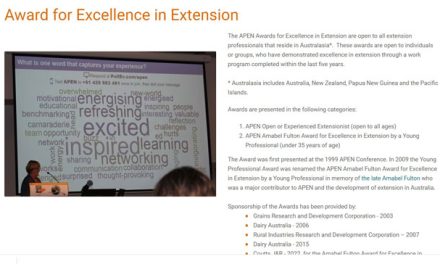
Join us to celebrate the International Women’s Day in this regional webinar. Inspiring women working in agricultural research, extension and policy in Bangladesh, Bhutan, Cambodia, India, Indonesia, Iran, and the Pacific Islands will share their stories of success, challenges and lessons as innovators and influencers of change in the Asia-Pacific region.
Women’s valuable role in agricultural innovation
For decades, women, including researchers, scientists, rural advisors, research project managers and leaders, but also women producers and agri-entrepreneurs, have been critical players in advancing agricultural transformation of Asia-Pacific through innovation. However, often their valuable contribution to the strengthening of agricultural innovation systems (AIS) may not be fully recognized or utilized. This is mainly due to the patriarchal systems and conservative cultural environments within which they work, as well as their limited capacities, insufficient empowerment to influence innovation processes, lack of mentoring and leadership support, among other factors.
Nevertheless, the role of women in contributing towards food and nutritional security, as well as tackling the impact of COVID-19 and climate change in the region’s agriculture and rural development, can in no way be undermined. There is a general consensus within the Sustainable Development Agenda that “no society can reach its full potential unless it empowers women and youth, and removes all obstacles to women’s full participation in all areas of human endeavours” (AUC, 2015). As women and men bring different perspectives to problems, women are equally contributing and this equality needs to be perceived and projected as an enabler of innovation effectiveness.
Agricultural innovation system and key institutions
Agricultural innovation is considered to be the central driving force for achieving a world free from hunger and malnutrition. However, the development community needs to constantly remind themselves that the role of innovation in agricultural research and extension goes beyond technology. It is increasingly perceived as a process involving multiple actors working within an AIS, whereby individuals or organizations bring new or existing products, processes or ways of organization into use for the first time in a specific context, to increase effectiveness, competitiveness and resilience with the goal of solving a problem (FAO, 2022).
National agricultural research and extension system (NARES) working in collaboration with higher education institutions (HEIs), civil society, industry, international agricultural research and regional fora, are key players in promoting innovative solutions for small agricultural producers, small entrepreneurs and the society as a whole. However, despite increasing reforms and openness of the NARES actors away from the linear model of technology transfer and towards the AIS model, these institutions are still embedded in more conservative approaches focused on technological innovation rather than innovative processes involving multi-actors in knowledge co-creation and ensuring gender equality. As such, NARES too require institutional transformation using innovative processes and strategies that strengthen their own individual and organizational capacities, as well as the enabling environment for innovation to happen.
To enable such transformation, NARES organizations need to capitalize on female creativity and women’s leadership to push the boundaries of scientific knowledge and find innovative and inclusive ways to solve the region’s complex development challenges. Men are an important part of the innovation process and need to be sensitized on the importance of women empowerment. This can lead to the mindset change required to speed up the progress in innovation through agricultural research and extension. Therefore, efforts to strengthen the enabling environment and institutional capacities for innovation must promote gender equality to support women in realizing their full potential in the strengthening of AIS in their countries and the region.
The webinar
The Asia-Pacific Association of Agricultural Research Institutions (APAARI), in collaboration with the Asia-Pacific Islands Rural Advisory Services Network (APIRAS), and the Tropical Agriculture Platform (TAP) hosted by the Food and Agriculture Organization of the United Nations (FAO), is organizing a 1.5-hour webinar on ‘Women in research and extension: Advancing gender equality in innovation’. The event targets mainly women and men working in agricultural research, science, and extension in APAARI and APIRAS member institutions.
The webinar aims to inspire and mobilize change to help advance women’s role as innovators in their respective areas of research and extension, to ensure their meaningful and inclusive contribution to the transformation of agri-food systems in the Asia-Pacific region. Specifically, it aims to:
- Raise awareness on key challenges and opportunities facing women in research and extension in facilitating and contributing to innovation processes in agriculture;
- Share good practices and inspiring stories of women in research and extension in Asia-Pacific;
- Discuss what needs to be done to address the challenges facing women in research and extension across the Asia-Pacific region, and the support they need.
Programme (14.30-16.00 Bangkok time)

The Asia-Pacific Association of Agricultural Research Institutions (APAARI) is an innovation platform that plays an important role in strengthening innovation in agriculture and related processes to improve food security, nutrition and sustainable development in the region.
The Asia-Pacific Islands Rural Advisory Services Network (APIRAS) is a platform for networking, advocacy, and capacity building for agricultural extension and rural advisory services (RAS) professionals and institutions in the Asia-Pacific Islands Region.
Download the Flyers here
Register here
Meet the speakers here


